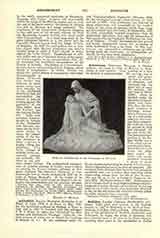

Acidalius, VALENS (German, Havekenthal), philologist, Latin poet, and convert to the Catholic Church, b. 1567 at Wittstock in the Mark of Brandenburg; d. May 25, 1595, at Neisse. After his education at the universities of Rostock, Greifswald, and Helmstadt, he began the study of medicine, but later devoted most of his time to the Latin classics, spending three years in the universities of Padua and Bologna and travelling through the chief Italian cities. After taking his degree of Doctor of Medicine at Bologna, he devoted himself entirely to Latin literature. Returning to Germany in 1593 in feebler health, he found a patron in Johann Matthaus Wacke von Wackenfels, also a convert, and chancellor to the Bishop of Breslau, Andreas von Jerin. In 1595 he became a Catholic, and, about the same time, Rector of the Breslau Gymnasium. He died a few weeks later. Before his death appeared “Animadversiones in Q. Curtium” (Frankfurt, 1594) and “Plautinae divinationes et interpretationes” (Frankfurt, 1595). A posthumous work is “Notae in Taciti opera, in Panegyricos veteres.” Lipsius spoke of him as a “pearl of Germany“, and Ritschl, as having a “remarkable critical faculty”.
F. M. RUDGE

